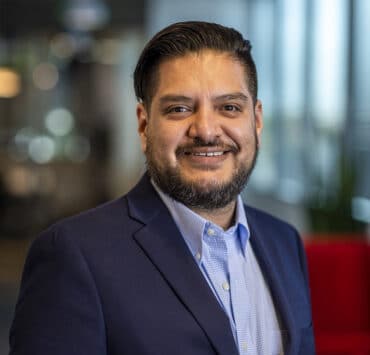|
Getting your Trinity Audio player ready...
|
Maria Peña is hard at work on her masters of the arts in public relations at Johns Hopkins University. The journalist who has reported for major networks like Univision, Telemundo, NBC, and participated in a host of Spanish-language talk shows has entered a new chapter in her career as public relations specialist at the Library of Congress.
In this new role, she will use every tool at her disposal to make the US’ most prestigious knowledge archive as accessible to Latinos as it is to the broader population.
The Nicaraguan born journalist is an inspiration to any Latina with the desire to pursue a dream. She never stopped hustling for her next story, and she did so in a time when inclusivity wasn’t even a consideration. Peña’s passion for storytelling for the Spanish-speaking world has always been her north star, and she now has a national stage to help Latinos better understand their wide contributions to the history of the United States.
“I want people to know about the Hispanic contribution to the Revolutionary War, and how we’ve helped shape this country from its very beginnings,” Peña says with audible excitement.
“I just got to write a blog about how while Cinco de Mayo may celebrate a victory over the French, it was also a defining moment for saving [the United States] during the Civil War. There are so many amazing stories when your collection includes over 173,000,000 items.”
“It was so vital for me to find people whose footsteps I could follow. That’s why it’s so important for me to help young people today.”
Maria Peña
Those items include recent acquisitions such as a batch of letters written by Mexican military leaders from the 1800s, one from then-president Benito Juárez. Peña says the letters go a long way toward helping create the long-running links between Mexico and the United States and the Hispanic influence on the US over hundreds of years.
Peña is a natural storyteller. As a reporter, she interviewed President Barack Obama on two separate occasions and covered his historic 2016 visit to Cuba, seeking to normalize relations for the first time in over a half-century.
Peña’s success isn’t the result of a well-placed mentor or a familial connection to the business. “I was the first in my family to graduate from college, and I really didn’t have anyone to look up to in my family when it came to finding my way,” Peña explains. “It was so vital for me to find people whose footsteps I could follow. That’s why it’s so important for me to help young people today.”
Peña rarely turns down an opportunity to speak with students ranging from elementary to graduate school. She remembers speaking to a group of elementary students in Woodbridge, Virginia, a district with a large Latino demographic.
“When I told these children that I interviewed President Obama, you just watched their little faces light up,” Peña remembers. “They couldn’t imagine a Hispanic reporter, let alone one who had interviewed a president. It’s a chance to help young people imagine what their future could be like. Those kids need to see Hispanics in all of the roles they might hope to have someday.”
“I want people to know about the Hispanic contribution to the Revolutionary War, and how we’ve helped shape this country from its very beginnings.”
Maria Peña
For older students, Peña says it is imperative for those looking to pursue a career in media to understand that the landscape has drastically changed. It’s no longer about landing a cover story. You must scoop the competition, and as the delivery devices for media have evolved, the competition has only gotten steeper.
“I hope young people understand that the learning never stops,” Peña says. “That’s why I decided to go back to school. If you are passionate about something, you will find a way to do it, and I hope that students are seeing more and more representation in their fields of interest.”
At the time of speaking, Peña was excitedly working on plans for the Library of Congress’ National Book Festival. It is yet another chance for the institution to widen its scope and reach out to its increasingly growing Hispanic audience.
In many ways, it’s what Peña has always done: bring more Latinos to the national conversation and provide them the context to better understand their vital part in our national identity. This is a new way for Peña to continue those efforts, backed by the organization writing the book on the story of the States.

